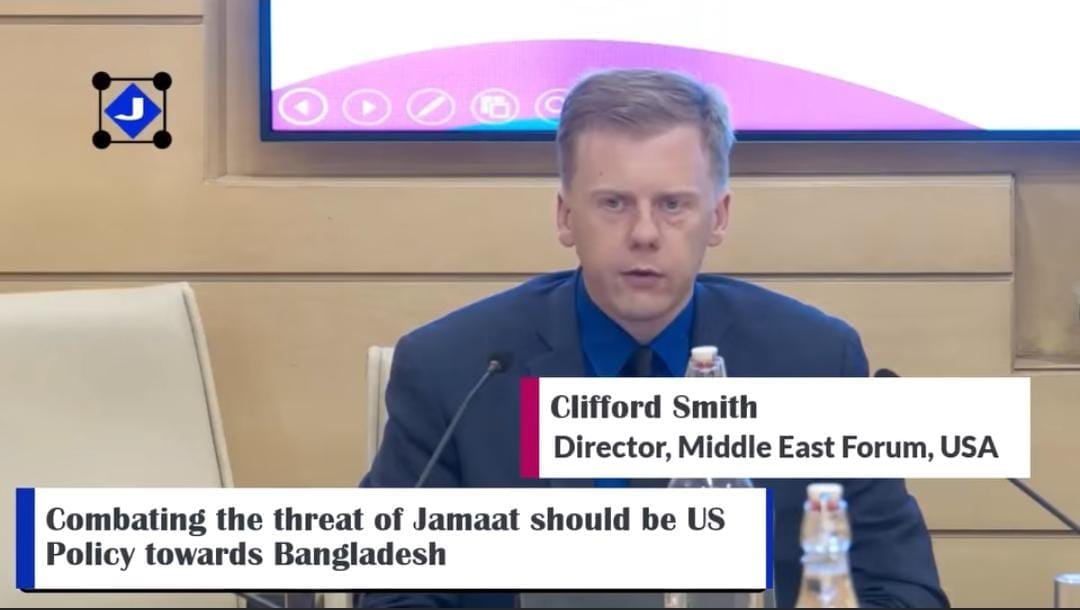India’s Ban on Hizb ut-Tahrir: A Lesson for Bangladesh in Combating Extremism
The Indian government’s recent ban on the Islamist organisation Hizb ut-Tahrir, branding it a national security threat, has caught the attention of Bangladesh, a country that has also struggled with

The Indian government’s recent ban on the Islamist organisation Hizb ut-Tahrir, branding it a national security threat, has caught the attention of Bangladesh, a country that has also struggled with the group’s influence. Hizb ut-Tahrir is an extremist group that seeks to establish a global Islamic caliphate, rejecting democratic governance and advocating for the overthrow of existing political systems.
India’s decision to ban Hizb ut-Tahrir follows concerns over the group’s increasing influence, particularly its focus on recruiting and radicalising young people. The group’s activities were seen as not just ideological but also as destabilising forces that threatened the peace and security of the nation. This ban comes as part of India’s larger counterterrorism efforts, aimed at preventing extremist organisations from gaining footholds in sensitive areas.
The Threat of Hizb ut-Tahrir in Bangladesh
For Bangladesh, this move serves as a crucial reminder of the potential threats posed by groups like Hizb ut-Tahrir. The organisation has a history of operating within Bangladesh, where it has sought to spread its extremist ideology, especially among the youth. While the Bangladeshi government has banned the group multiple times, its influence remains a persistent concern.
In the past, Bangladesh has taken steps to clamp down on Hizb ut-Tahrir’s activities, recognizing the group’s destabilising agenda. Despite these efforts, the organisation has continued to operate underground, leveraging the internet and other covert channels to spread its message. Its calls for the establishment of a caliphate have resonated with some sections of society, particularly vulnerable young people who are often disillusioned by unemployment, corruption, and lack of opportunities.
Lessons from India’s Ban
India’s ban on Hizb ut-Tahrir provides an important case study for Bangladesh in managing similar threats. By recognizing the group’s potential to disrupt national security, India has acted decisively, sending a clear message that extremist ideologies will not be tolerated. This move underscores the importance of a proactive approach in combating radical groups, rather than waiting for their influence to grow.
Bangladesh can take this moment to reflect on its own strategies for dealing with radical groups. While the country has already taken measures to limit Hizb ut-Tahrir’s activities, it is critical to maintain vigilance and ensure that the organisation does not resurface under different names or through alternative means. The recent political unrest and economic challenges facing Bangladesh make it even more imperative to counter extremist narratives that prey on societal discontent.
India’s actions demonstrate the necessity of a comprehensive counterterrorism strategy, one that includes not only legal action and security measures but also community engagement and deradicalization programs. Bangladesh could strengthen its efforts by working closely with religious and community leaders to promote messages of peace and tolerance, countering the rhetoric of extremist groups.
Regional Cooperation for Security
The ban on Hizb ut-Tahrir also highlights the importance of regional cooperation in combating terrorism and extremism. South Asia, with its complex political dynamics and historical tensions, is particularly vulnerable to the spread of extremist ideologies. Organisations like Hizb ut-Tahrir do not recognize national borders, and their influence can quickly spread from one country to another, especially in an interconnected world where social media plays a significant role in radicalization.
Bangladesh, India, and other neighbouring countries must work together to share intelligence, coordinate security operations, and collaborate on counterterrorism initiatives. Joint efforts can prevent extremist groups from using one country as a base to destabilise another. The Indian ban on Hizb ut-Tahrir can serve as a catalyst for such cooperation, encouraging regional solidarity in the face of common threats.
Protecting the Youth from Radicalization
One of the key aspects of India’s concern about Hizb ut-Tahrir is its focus on the radicalization of youth. Bangladesh faces a similar challenge, as young people, often frustrated by economic difficulties and lack of opportunities, can become targets for extremist recruiters. Countering this requires not only security measures but also long-term social and economic solutions.
The government of Bangladesh should prioritise creating more opportunities for its youth, investing in education, employment, and vocational training programs. Engaging young people in positive, constructive activities will make them less susceptible to extremist ideologies that promise quick solutions to their frustrations. Additionally, robust online monitoring and intervention systems can help prevent the spread of radical content, ensuring that young minds are not influenced by extremist propaganda.
Moving Forward
India’s ban on Hizb ut-Tahrir is a reminder that extremist ideologies continue to pose a serious threat to national and regional security. For Bangladesh, this serves as an important wake-up call to remain vigilant in its fight against radicalization and extremism. By learning from India’s actions and strengthening its own counterterrorism efforts, Bangladesh can ensure that groups like Hizb ut-Tahrir do not gain a foothold and disrupt the country’s peace and progress.
Collaboration with neighbouring countries, investment in youth, and a sustained focus on promoting tolerance and inclusivity are crucial steps toward safeguarding Bangladesh’s future against the threat of extremism.


